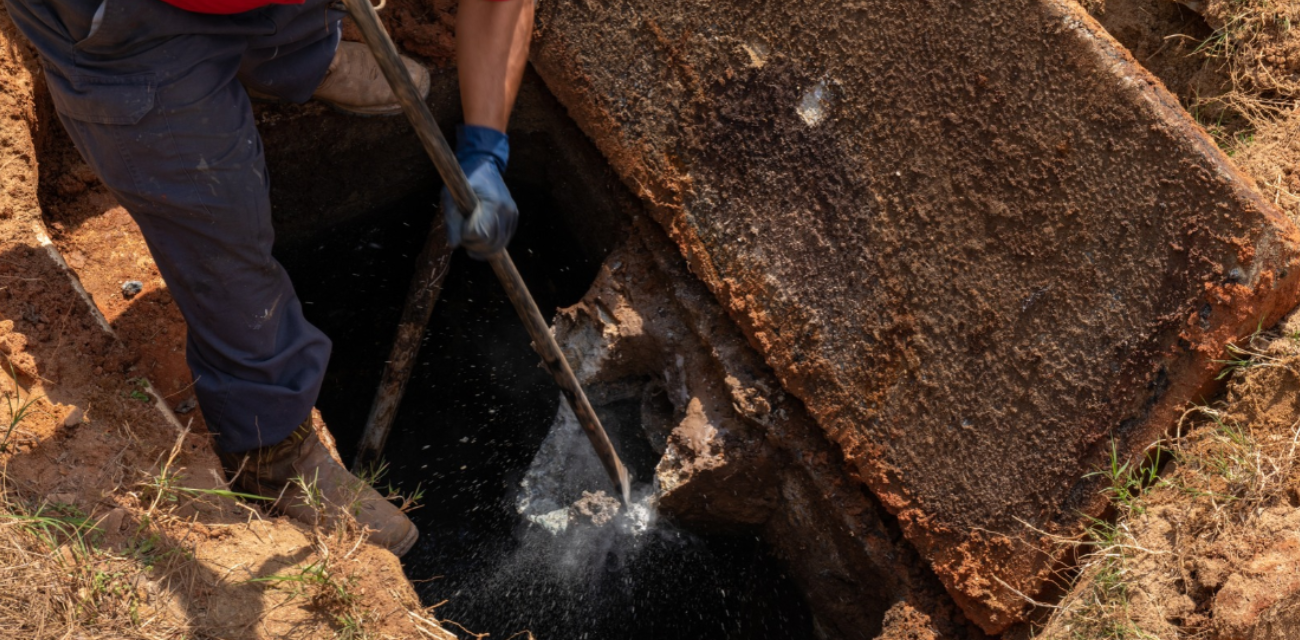Michigan could become the 50th state to get a septic code

Septic tanks are as ubiquitous to Michigan homes as backyard fire pits. Thirty percent of residents use them to dispose of their waste—higher than the 20% national average. But a quarter of our 1.4 million tanks are likely leaking billions of gallons of human waste onto our properties, into our lakes and streams, and into our drinking water.
This is because Michigan is the only state in the nation that lacks a statewide septic code, which sets minimum standards for construction, operation, and maintenance. Legislation led by Rep. Phil Skaggs (D-East Grand Rapids) in the Michigan House last week would change that.
House Bills 4479 and 4480 would make it so all septic systems are periodically inspected and, if failing, fixed. Additionally, a database on inspections would be created, an inspector certification system would launch, and a technical advisory committee on onsite wastewater treatment would be created to advise the Department of Environment, Great Lakes and Energy on recommended standards for the management of septic systems.
 “Michigan has debated ways to stop septic systems spills for over two decades—longer than the average septic system is designed to last,” said Megan Tinsley, water policy director for the Michigan Environmental Council. “But the Legislature has never acted. With Rep. Skaggs’ bill, we can. It provides the framework and solutions to prevent aging and failing septics from contaminating the water Michiganders use to drink and play in.”
“Michigan has debated ways to stop septic systems spills for over two decades—longer than the average septic system is designed to last,” said Megan Tinsley, water policy director for the Michigan Environmental Council. “But the Legislature has never acted. With Rep. Skaggs’ bill, we can. It provides the framework and solutions to prevent aging and failing septics from contaminating the water Michiganders use to drink and play in.”
When a septic system fails, it leaks human waste that carry pathogens into the ground. This pollution then makes its way to groundwater, lakes, streams, or even drinking water nearby. These threats have been documented by the state since at least the 1970s.
Scientist Joan Rose said the human waste from failed septic systems not only pollutes but can also spread dangerous diseases caused by viruses and bacteria like E. coli.
 “Our studies in Michigan have shown that human fecal contamination is higher in watersheds where there are more septic tanks,” the Homer Nowlin Endowed Chair in Water Research said. “That puts people at risk of contracting diseases. Ultimately, if we want to protect our water quality and our health in the state of Michigan, we really need a monitoring system that will help us address and modernize our septic tanks.”
“Our studies in Michigan have shown that human fecal contamination is higher in watersheds where there are more septic tanks,” the Homer Nowlin Endowed Chair in Water Research said. “That puts people at risk of contracting diseases. Ultimately, if we want to protect our water quality and our health in the state of Michigan, we really need a monitoring system that will help us address and modernize our septic tanks.”
Only 11 of Michigan’s 83 counties have enacted septic codes that require inspections of any kind. Of those that have, Tinsley said the number of failing septic tanks is often greater than expected. Inspections also uncovered instances of untreated sewage flowing to a county drain and a nearby creek.
“We need a comprehensive, statewide approach to tackle this issue,” Tinsley said. “In a state with 9,000 miles of streams exceeding safe E. coli levels, it can no longer be standard practice to allow this pollution to continue unabated. Doing so is a risk to our aquatic environments, our outdoor recreation-based economies, and drinking water safety.”
Rep. Skaggs’ intends to hold a thorough vetting process for all interested stakeholder groups before the bills head to the Michigan House Committee on Natural Resources, Environment, Tourism, and Outdoor Recreation. House Bill 4480 was introduced by Rep. Carrie Rheingans (D-Ann Arbor) in the House. Sen. Sam Singh (D-East Lansing) introduced both bills in the Senate. Five senators were cosponsors of the Senate bills, and 38 representatives were cosponsors of the House bills.

A statewide septic code is one of seven priorities for the Environmental Council and its 90 member groups. For a full list of their goals, click here.
Discover
Power environmental change today.
Your gift to the Michigan Environmental Council is a powerful investment in the air we breathe, our water and the places we love.
Sign up for environmental news & stories.
"*" indicates required fields





